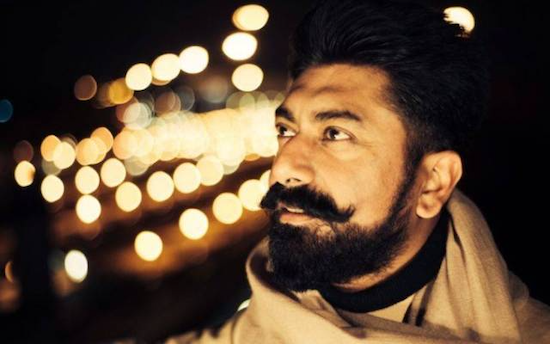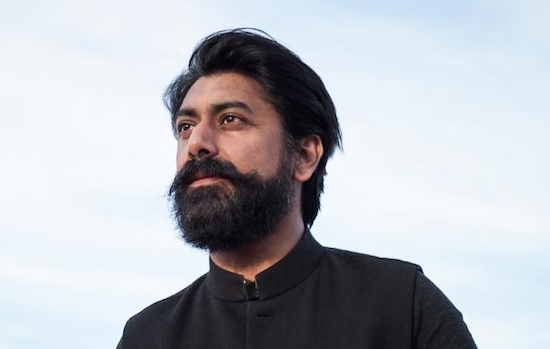Internationally acclaimed percussionist, producer and composer Talvin Singh is renowned for his ability to craft a soothing yet alluring blend of Indian classical and electronic music.
With the tabla at the heart of his rich yet meditative artistry, Singh says he always steps on to the stage with the intention of feeling a deep connection with fellow musicians and his audiences. His upcoming show at The Tung Auditorium in Liverpool is all set to deliver exactly this, built around improvisations, stripped-back acoustic soundscapes and minimal pulses of electronics.
Speaking to tQ about what people can expect from the concert taking place this Friday (November 18), Singh says "the first half will be solo, in a classical contemporary tabla solo. And then I have a guest, Tom Rogerson, who I’ve played with on and off over the years – most recently at St James’s Piccadilly. Then I have a little bit of song with vocalist Bev Lee Harling who I’ve been working with on a few different songs. She’s a great violinist as well."
Singh’s musicianship is the perfect balance between making use of his years of experience in his craft, while also allowing himself to be taken to sonic planes that he didn’t expect via improvisation. This element, he says, depends on how the language of music flows between you and your fellow performer on stage, before reaching audiences to transport them into the unique world you’re building. He adds that experimentation is not quite as common within his music these days. "In the past, there was a period were things happened out of fluke, but that doesn’t happen as much now. It was back in the days when I had more time to mess around, and as you move on there are people expecting things of you, so your process alters and evolves."
That said, the creation of a spontaneous narrative on stage continues to be the foundation of Singh’s live shows. The upcoming performance aims to bring out the meditative and peaceful quality of the tabla, and will be filled with everything from mantra-like collaborations between Rogerson and Singh to a tinge of vocal romance courtesy of Harling. Touching upon what he wants from the show and from his performances in general, he says: "When you’re on stage you’re not really coming up with the ideas yourselves, they are coming from a higher plane, but you need to make sure you’re executing it well. I want to express a deep connection with a musician who is intuitive enough to know where I want to go next, and where I can be as intuitive towards where they want to go."
Despite the seemingly free-flowing nature of the music Singh performs, it comes from razor-sharp focus and dedication. He reveals that the most challenging part of the music making and performing process for him is the sound check. "My sound checks are very long," he says. "I don’t tend to move away from them until I am satisfied. A concert is a celebration of a musician’s sadhana [discipline and dedication] live. You just have an hour to play it, you spend the rest of the time practicing and perfecting. When you’re on stage, all the time you spent practicing, being inspired and researching, comes to fruition." The reward, he adds, "is down to what we perform, I just focus on the connection and how the audience reacted to the concert. There are often moments in each concert that you know can never be recreated, that’s always a beautiful feeling."

There are countless high points to Singh’s career, from winning the Mercury Prize for his debut album, OK, in 1999 to being awarded an OBE for services to music or his diverse range of collaborations with artists such as Sun Ra, the late Ustad Sultan Khan, Terry Riley, John Martyn and Yoko Ono – and of course his massive contribution to inspiring talent in contemporary music across India and the South Asian diaspora around the world.
Beyond it all, however, the experience of making music is all about creating a powerful spiritual connection for audiences. Reflecting on what people have said about his recent gigs, he says, "people say they lose themselves at the show. It’s like you’re transporting them to a different space. And that’s really important because who would want to buy a ticket and listen to something they’ve already heard or they can hear again next week?"
What he hopes is that in the hour they are sat in front him, absorbing his art, "they receive all the best things possible without overloading them." Singh is often credited as someone whose craft has helped demystify Indian classical music, but that doesn’t have to involve overstimulating people or inducing claps for the sake of it. In fact, he says, "historically, in the Indian context, claps were when a musician was playing really badly and it was meant to signal to stop. So, I go on stage and create a meditative tabla experience and just try to induce less clapping with my music."
Delving deeper into what he means by ‘overloading’, he adds: “Minimalism is something we’re only feeling out recently in India. I try to be conscious of that and try to present my music with a minimal vibe. I want to create a peaceful experience with tablas. I don’t want to play something deliberately with the aim of getting audiences to clap."
Talvin Sing performs at Liverpool’s Tung Auditorium on November 18, presented in partnership with Milap. Remaining tickets can be found here


